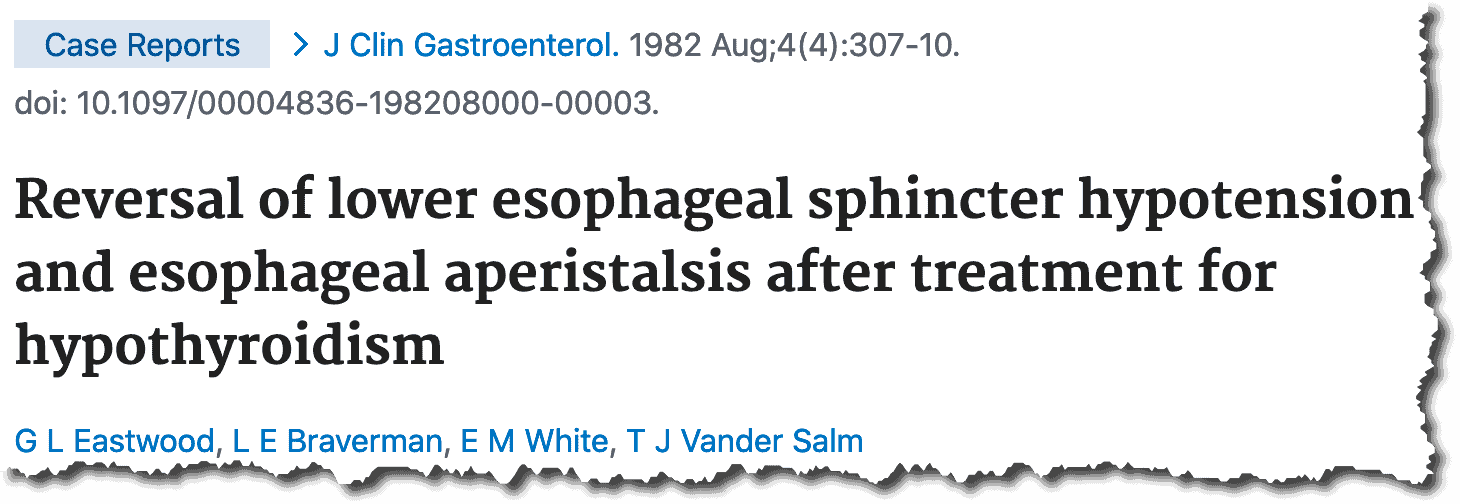
This can be a sign you have it
—-Important Message from My Student’s Wife—-
Submitting to my boyfriend (NSFW)
Rachel here, and recently I’ve been looking for a way to spice up my relationship with my boyfriend…

I think I may have found a sex secret that really works — at least it seems to get John’s engine revved!
Here’s the sex secret I learned from Matt Cook that’s keeping my relationship hot
———-
Dysphagia in men
Do you ever have trouble swallowing?
Aside from being very worrying and inconvenient, swallowing difficulties or “dysphagia,” can also be simply an indication of hypothyroidism.
When the thyroid gland can’t function properly, it becomes difficult to retain magnesium, which can cause muscles and tissues to cramp up and become tense.
This is why epsom salts and magnesium supplements can be so relaxing.

Magnesium, along with T3 (the main thyroid hormone), work together to enable ATP production by the mitochondria powerhouses in your body’s cells, which energizes all tissues.
In a context of hypothyroidism (and magnesium deficiency), the muscles of the esophagus can become rigid and prevent food from going down as normal:
“Severe hypothyroidism may lead to disturbances in esophageal peristalsis. When the proximal portion is involved, myxedema causes oropharyngeal dysphagia while esophagitis and hiatal hernia occur when the distal esophagus is altered.” – Daher et al. (2009)
This, and other pathologies of the digestive tract, can often be remedied with thyroid supplementation:
“An esophageal motility tracing showed absence of peristalsis in the lower esophagus and the lower esophageal sphincter (LES) could not be identified. Thyroid replacement therapy, in conjunction with antacid and cimetidine treatment, was associated not only with improvement in the gastroesophageal reflux symptoms, but also with a return of esophageal peristalsis and LES pressure to normal.” – Eastwood et al. (1982)
The authors then tested their claims with an experiment during which they made four cats become hypothyroid…
…and then observed a fall in lower esophageal sphincter pressure.
A more recent study by Galluzzi & Garavello (2019) has observed an increased incidence of dysphagia in patients who have been subjected to a thyroidectomy.
This further highlights the implication of thyroid hormones.
Obviously, symptoms can be controlled with adequate thyroid supplementation, but in general, it is an extremely bad idea to get your thyroid removed.
As mentioned earlier, low magnesium levels and hypothyroidism go hand in hand, and accordingly, hypomagnesemia is also a known factor in dysphagia. (Schreiber, 2013)
One study documented the recovery of an elderly women suffering from dysphagia:
“A link with the severe hypomagnesemia (…) was suspected, and a therapy with oral [magnesium] was started and continued for 4 months. This was associated with a slow progressive normalization of [magnesium] plasma level and reverted radiographic esophageal findings with disappearance of dysphagia.” – Iannello et al. (1998)
I think the connection between magnesium/thyroid and esophageal motility problems is quite obvious.
Thankfully, magnesium can be supplemented transdermally and a deficiency is easy to overcome.
Thyroid function typically requires supplementation (of T3 and T4) to bring back to an optimal level…
…but it can also be corrected with good lifestyle habits such as nutritious foods, sunshine and adequate sleep!
—-Important Message—-
Banned because it works too well
What if I told you could make joint, muscle, and nerve pain vanish in 5 seconds?
Would you try it?
What if I told you it’s non-addictive, requires no script, and has no side effects?
Still interested?
Now, what if I told you that today you could get it for less than a few bucks right now?
But only if you live in certain areas because it’s BANNED elsewhere?
WARNING: Yes, sadly, Big Pharma has gotten this amazing formula banned in certain parts of the world…
———-
